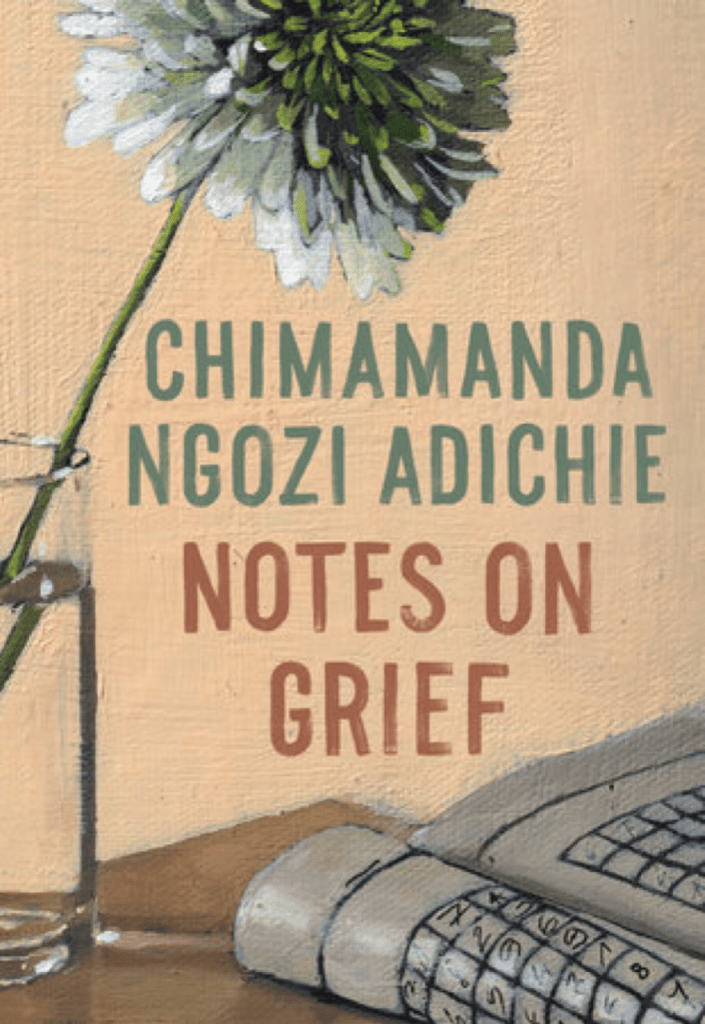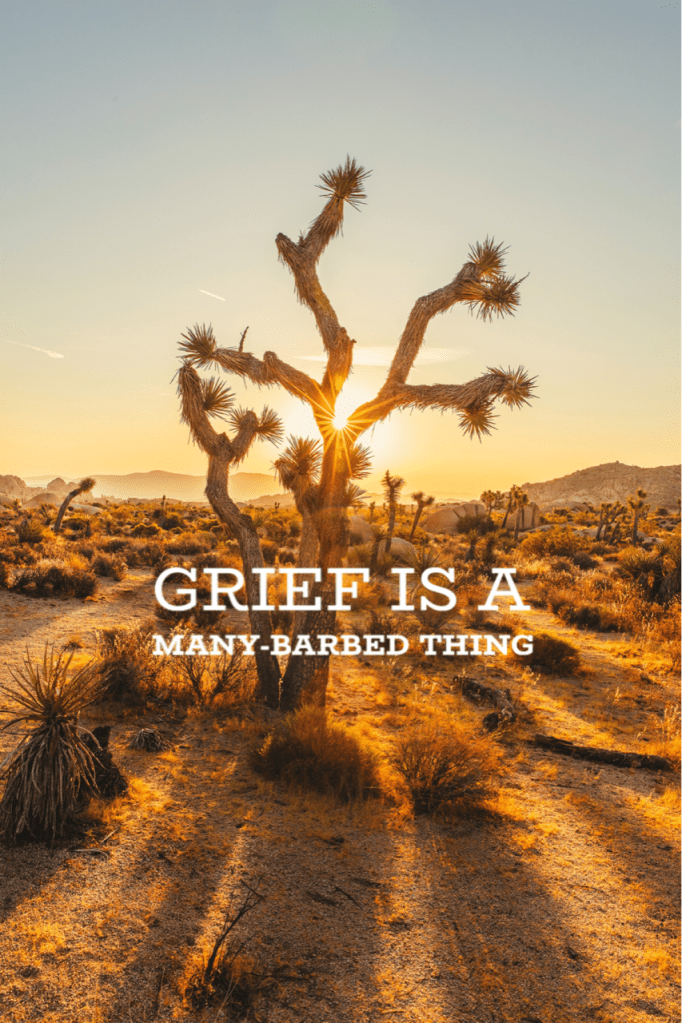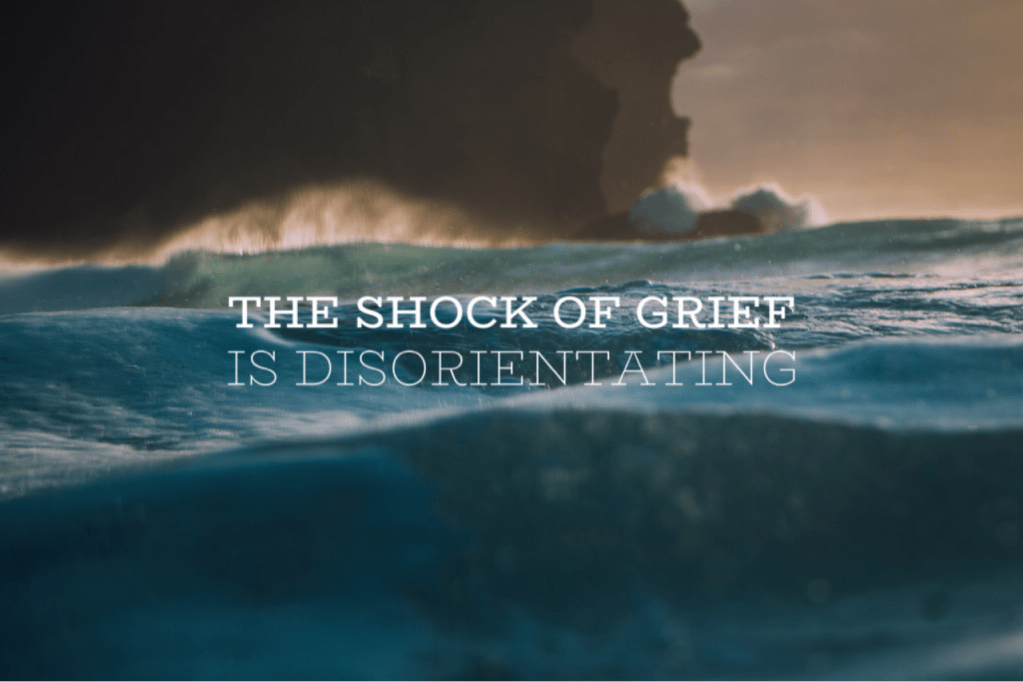Chimamanda Ngozi Adichie’s beloved father died unexpectedly in the summer of 2020, succumbing to complications of kidney failure. Notes on Grief is a touching tribute to a devoted and talented man who inspired admiration and loyalty.

Adichie invites us to walk with her as she examines the emotional complexities of grief. For anyone who has tasted the joys and sorrows of love and loss, Adichie’s penetrating insights are a balm to the broken-hearted and a source of hope for the despairing.
‘Grief is a many-barbed thing. It is not something you can hide from or dull; it is something you wade through.’

Let us reflect on EIGHT ASPECTS OF GRIEF that are universal, no matter our cultural heritage.
(1) Denial
My sister Uche says she has just told a family friend by text, and I almost scream, ‘No! Don’t tell anyone, because if we tell people, then it becomes true.’
Denial is a common reaction to the loss of a loved one. We do not want to entertain the thought that the worst could happen, that our loved one is gone.
Denial is like a temporary cocoon, shielding us from the harsh reality of unimaginable loss. It is a protective mechanism, giving our mind and spirit time to assimilate the uncomfortable truth.
After the death of our son Adam to suicide, I experienced fleeting moments of disbelief that he would choose to end his life. It was part of the struggle I had in processing what had happened.
(2) Withdrawal
I imagine the confusion of some relatives, their disapproval even, when faced with my withdrawal, the calls I leave unanswered, the messages unread. They might think it a mystifying self-indulgence. In truth, at first it is a protective stance, a shrinking from further pain, because I am drained limp from crying, and speak about it would be to cry again. But later it is because I want to sit alone with my grief. To hold on to it.
Grief is often accompanied by social withdrawal. This can lead to misunderstanding as people grieve differently. Some of our closest friends and family may place unrealistic expectations on us. We need to be honest with ourselves and recognise that we cannot please everyone. If we need space to cope with our grief, then take it. It is not a selfish indulgence.
I found walking helpful on many levels. Physical exercise is always good, improving your energy levels and reducing anxiety. The rhythm of walking allows you to process your thoughts and renew your purpose.
(3) Unreality
I am filled with disbelieving astonishment that the mailman comes as usual, and that people are inviting me to speak somewhere and that regular news alerts appear on my phone screen. How is it that the world keeps going, breathing in and out unchanged, while in my soul there is a permanent scattering?
The shock of grief can leave you feeling disorientated, detached from your surroundings. It can seem incredulous that the world continues to function normally despite the intense pain and emotional upheaval you are experiencing.

I recall having a hair cut prior to Adam’s memorial service. Hairdressers often enquire about your life. I felt totally unprepared to share what I was living. And yet despite the sadness there was cause to smile. The young lady washing my hair was not aware that the water was cascading down my back. It took some time to dry my shirt with the hair dryer.
(4) Regret
I wish I had not missed those few days of calling them, because I would have seen that he wasn’t just mildly unwell – or I would have sensed it if it wasn’t obvious – and I would have insisted on hospital much sooner. I wish, I wish. The guilt gnaws at my soul. I think of all the things that could have happened and all the ways the world could be reshaped, to prevent what happened on 10 June, to make it un-happen.
There are always regrets. We have this idea that it was in our power to make a difference. If only I had been more diligent, more engaged, more insistent, things might have turned out differently. It is easy to feel guilty, to feel that we failed in our duty to keep our loved ones safe. We imagine different scenarios with different outcomes, but it no longer matters, the past is behind us, there is no going back.
When I think of my son, I am reminded of my inability to connect with him in the final days, to understand his struggle, to offer a positive way forward. I seemed powerless to form the right questions and speak the right words. He was lost to me, and I did not know how to draw him back.
(5) Pain
Why are my sides so sore and achy? It’s from crying, I’m told. I did not know that we cry with our muscles. The pain is not surprising, but its physicality is.
Grief is surprisingly physical but not everybody experiences grief in the same physical way. It may manifest itself as exhaustion, shortness of breath, mental confusion, the inability to concentrate, a loss of memory, crying fits, and bodily aches.
Grief is hard work and takes a toll on our bodies. We need to listen to our bodies and practice healthy habits – stay hydrated, get exercise, eat properly, and take time to rest.
(6) Disappointment
Grief is a cruel kind of education. You learn how ungentle mourning can be, how full of anger. You learn how glib condolences can feel. You learn how much grief is about language, the failure of language and the grasping for language.

It can be difficult to know what to say to someone who is grieving. Our expressions of sympathy often sound shallow or wooden. Rather than bringing comfort and support they illicit feelings of anger and disappointment.
Adichie acknowledges that people are kind, people mean well, but their words annoy, often lacking substance. She objects to the following words and phrases – ‘Demise.’ ‘He is resting.’ ‘He is in a better place.’ ‘He was eighty-eight.’ ‘It has happened, so just celebrate his life. They diminish the person who has died and are insensitive to those who are grieving.
I struggled with the phrase ‘Sorry for your loss.’ It seemed too neat, too concise. It was impersonal. It lacked substance. It offered nothing. I thought,
‘You have no idea what it is to lose a son to suicide. If you are going to talk about loss, give it a name. His name was Adam.’
People who are grieving want to know what their loved one meant to you and how their death will impact on your life. They want to know what you have lost.
(7) Memories
One of my favourite things in the world was just to hang out with my father. To sit with him and talk about the past was like reclaiming gorgeous treasure that was always mine anyway. He gave me my ancestry in finely sketched stories.
It is the memories we cherish. They are an integral part of who we are. Memories help us maintain a bond with our loved ones and remind us of the impact they had on our lives. Memories shape us, determining the priorities we set for our life. Memories inspire a commitment to live fully.
Edith Eger says,
‘Memory is sacred ground. But it is haunted to. It is the place where my rage and guilt and grief go circling like hungry birds scavenging the same old bones.’

(8) Change
It does not matter whether I want to be changed, because I am changed. A new voice is pushing itself out of my writing, full of the closeness I feel to death, the awareness of my mortality, so finely threaded, so acute. A new urgency. An impermanence in the air. I must write everything now because who knows how long I have?
The unexpected loss of a loved one changes our life irrevocably. No longer can we assume that life is permanent. What we know is transient and may be turned on its head without warning. Life is for a season and seasons come and go. We want certainty but must contend with not knowing.
We are exhorted to ‘make the best possible use of our time for the days are evil.’ We are left to ponder what is and what is to come. No matter the mix of joy and pain, no matter how many of our dreams are yet unfulfilled, questions remain.
Robert Dykstra says,
‘In grief, life takes the shape of a giant question mark.’
Very powerful. I have lost both my father and my father-in-law in the last 7 months. Thank you for sharing this.
LikeLike
The regret stage was the hardest for me after losing my mom. I was thrust into the caregiver role and I didn’t know if I did the best job. But I did. I learned that all we can do in life is give it our best.
LikeLike